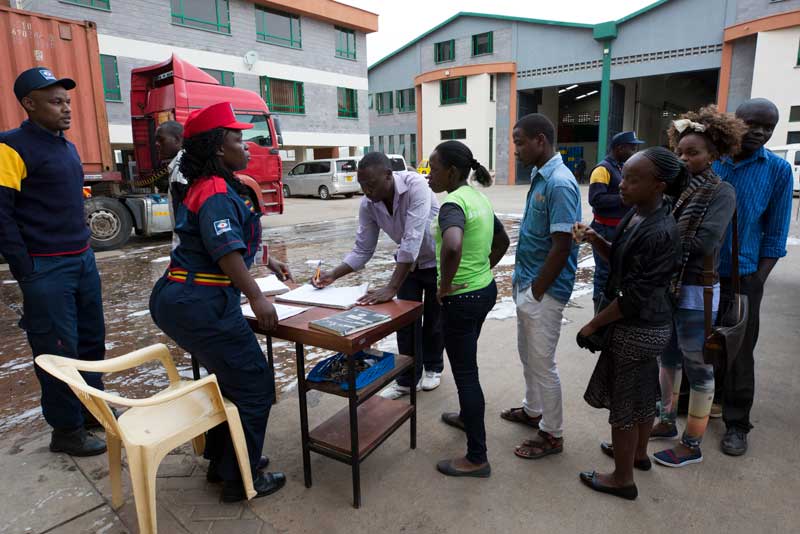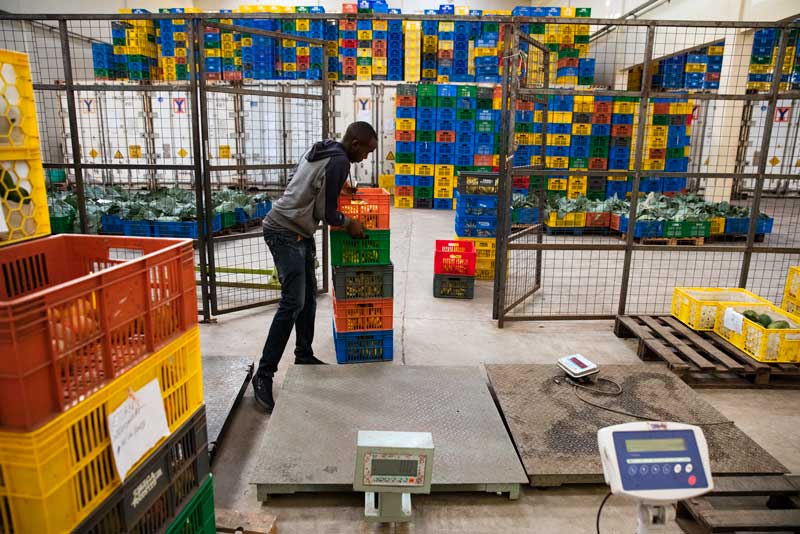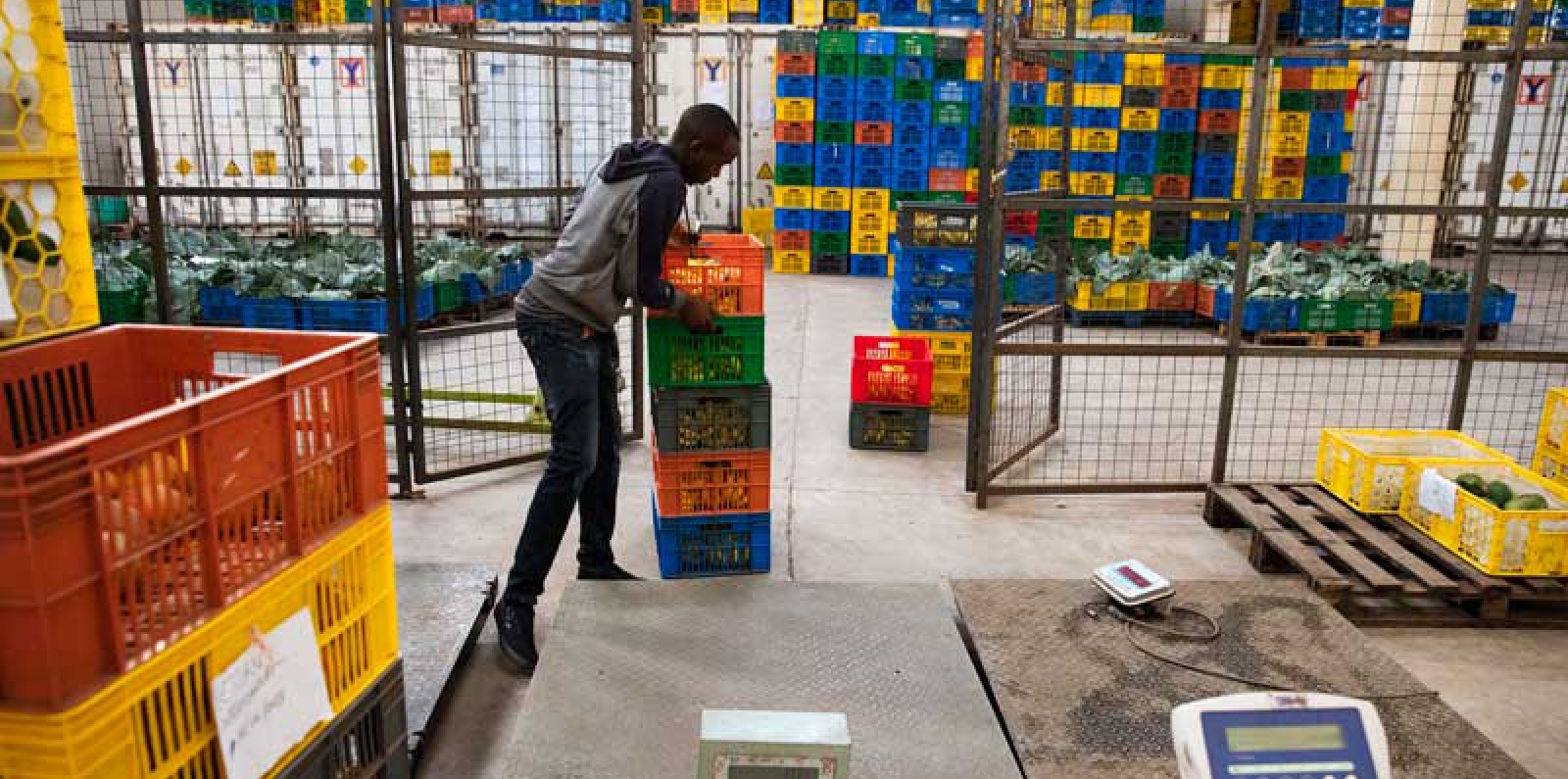Originally published on the IFC website.
“Buy high, sell low” doesn’t sound like a very promising philosophy for a start-up business. But for Twiga Foods, a Kenyan mobile phone platform that sells bananas and other produce from small-scale farmers to local vendors and markets, paying farmers more and selling to vendors for less has been a winning formula—with ripple effects across the entire supply chain.
Farmers who sell produce to Twiga now have access to a fair, transparent, mobile marketplace that offers higher prices for their goods. In the past, they often lost money, time, and products because sales depended on multiple layers of brokers to get their goods to markets and wholesale vendors. Each middleman took a cut that ate into their family’s income.
“Before working with Twiga I used a broker, but the price varied greatly and often I would not get the right price for my product since they didn’t bring scales to measure accurately,” says Anderson Kivuti, a 54-year-old farmer in the town of Embu who’s been selling bananas and kale to Twiga for the past six months. “Twiga is more organized and gives me stability.”
Besides earning more for their crops, farmers can increase their farms’ productivity as they receive technical advice and financial offerings geared to their specific needs. On the other end of the supply chain, vendors benefit from fast, free delivery of produce.

Since Twiga’s founding in 2014, the company has sold 200 million bananas through its mobile-based supply platform. It now offers a variety of fruits and vegetables and will add other goods including flour, sugar, and rice by 2019.
IFC co-led Twiga Food’s recent financing of $10.3 million to help the company expand operations and offer new services to small holder farmers.
Better Access to Markets
Kenya is well-positioned for such progress: it has the largest GDP in East and Central Africa and one the most conducive environments for private sector expansion in sub-Saharan Africa. But the country still faces challenges related to accelerating growth and boosting shared prosperity. Poverty among rural farmers has been a particularly difficult problem to solve. That’s where Twiga’s mobile platform can make a difference as it reinvents both ends of the retail value chain.
Over 13,000 farmers and 6,000 vendors in Kenya now work with Twiga—which pays 20 to 40 percent more than brokers and farmer groups, and delivers payment in full within 24 hours through mobile money transactions. This helps farmers anticipate income and aids in financial planning.
Strengthening Food Security
Twiga also plays a critical role in helping Kenya achieve its sustainable development goals to achieve food security and promote sustainable agriculture. Its robust logistics and distribution system—including 12 collection centers, a distribution center with cold storage facilities, five depots, and trucks and vans for collecting and distributing produce—reduce food waste. The smooth logistics system limits Twiga’s post-harvest losses to under 5 percent, compared with 30 percent at informal markets, where farmers typically sell produce.

Twiga’s collection centers, which serve as transaction points for farmers, are staffed with agronomists who provide services that help farmers improve crop yields—and, by extension, their incomes. The company plans to add agricultural inputs distribution networks, farmer financial services networks, and access points for other basic goods. IFC helps ensure that Twiga is providing safer, more sustainable food for Kenyan consumers by providing training and on-site coaching to Twiga’s farmers. This will raise standards for domestic products, a new development in a country where previously only international goods set the standards for quality.
The recent financing from IFC includes funding from the Private Sector Window of the Global Agriculture and Food Security Program (GAFSP), which has the governments of Australia, Canada, Japan, the Netherlands, the United Kingdom, and the United States as donor partners. This funding makes it possible for IFC to invest in riskier projects with strong potential to promote food security and reduce poverty.
Join the conversation: #IFCimpact
